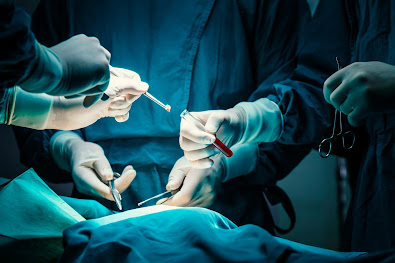Dubai's Wellness Oasis: Navigating Stem Cell Treatment Possibilities
Dubai, often recognized for its futuristic architecture and luxurious lifestyle, has emerged as a global hub for cutting-edge medical treatments, including stem cell therapy. This article explores the diverse landscape of Stem Cell Therapy and treatment in Dubai, shedding light on the types of therapies available, the conditions addressed, and the overall process. Whether you're a local resident or considering medical tourism, understanding the options is crucial for making informed decisions about your wellness journey.
Understanding Stem Cell Treatment
Stem cell therapy involves using the body's own regenerative cells to repair and replace damaged tissues. These cells have the unique ability to transform into various cell types, promoting healing and regeneration. This revolutionary approach has gained prominence in addressing a myriad of medical conditions, offering hope for patients seeking alternative treatments.
Why Dubai for Stem Cell Treatment?
Dubai's allure as a wellness oasis extends beyond its opulent surroundings. The city has invested significantly in state-of-the-art medical facilities and research, making it a desirable destination for those seeking advanced healthcare solutions. Stem cell treatment centers in Dubai boast world-class infrastructure, skilled medical professionals, and adherence to international medical standards.
Types of Stem Cell Therapies Available
Embryonic Stem Cell Therapy
Embryonic stem cells, derived from embryos, are versatile and can differentiate into any cell type in the human body. While controversial, these cells hold immense therapeutic potential, addressing a wide range of conditions.
Adult Stem Cell Therapy
Derived from adult tissues, these cells are more specialized but still possess regenerative properties. Adult stem cell therapy is commonly used for treating various diseases, including orthopedic and neurodegenerative disorders.
Conditions Treated with Stem Cell Therapy
Stem cell therapy in Dubai encompasses a broad spectrum of medical conditions, offering hope to patients dealing with:
Orthopedic Conditions
Stem cells have shown promise in treating orthopedic issues such as arthritis, joint pain, and sports injuries. The regenerative properties aid in tissue repair, potentially avoiding the need for invasive surgeries.
Neurological Disorders
Conditions like Parkinson's disease and multiple sclerosis may benefit from stem cell therapy, promoting neural regeneration and potentially slowing the progression of these disorders.
Autoimmune Diseases
Stem cells play a role in modulating the immune system, making them a potential treatment option for autoimmune diseases like rheumatoid arthritis and lupus.
The Process of Stem Cell Treatment in Dubai
Consultation and Evaluation
The journey begins with a comprehensive consultation, where medical experts assess the patient's medical history and determine the suitability of stem cell therapy. This personalized approach ensures tailored treatment plans.
Harvesting Stem Cells
Stem cells can be sourced from various tissues, including bone marrow and adipose tissue. The harvesting process is minimally invasive and performed under sterile conditions to ensure the purity of the collected cells.
Treatment Administration
Once harvested, the stem cells are prepared for administration. The delivery method varies based on the targeted condition, with intravenous injections and localized injections being common approaches.
Benefits and Risks of Stem Cell Therapy
Potential Benefits
- Regenerative Healing: Stem cell therapy facilitates the body's natural healing processes, promoting tissue repair.
- Minimally Invasive: Many stem cell procedures are minimally invasive, reducing the risks associated with traditional surgeries.
- Versatility: Stem cells can address a wide range of conditions, offering a versatile treatment option.
Considerations and Risks
- Ethical Concerns: Embryonic stem cell therapy may raise ethical questions for some individuals.
- Limited Research: While promising, certain applications of stem cell therapy may still be in the research phase, necessitating careful consideration.
Patient Experiences: Success Stories
Real-life accounts of individuals who have undergone stem cell treatment in Dubai provide valuable insights into the effectiveness of these therapies. From improved mobility to enhanced quality of life, these success stories underscore the transformative potential of stem cell treatments.
Visit: Dynamic Clinic in Dubai
FAQs About Stem Cell Treatment in Dubai
How effective is stem cell treatment?
Stem cell treatment's effectiveness varies depending on the condition being addressed. Consultation with medical experts can provide personalized insights into expected outcomes.
Is it safe to undergo stem cell therapy?
Yes, when conducted by qualified professionals in accredited facilities, stem cell therapy is generally considered safe. Rigorous safety protocols ensure the well-being of patients.
What conditions can be treated with stem cells?
Stem cell therapy has shown promise in addressing a range of conditions, including orthopedic issues, neurological disorders, and autoimmune diseases.
How long does the recovery process take?
Recovery timelines vary, with some patients experiencing improvements shortly after treatment, while others may require more time. Individual response to therapy plays a role in recovery duration.
Are there any age restrictions for stem cell treatment?
While there may be age considerations, eligibility is determined on a case-by-case basis. Consultation with medical professionals helps determine the suitability of stem cell therapy based on individual health factors.
Conclusion
In Dubai's wellness oasis, the possibilities of stem cell treatment are both groundbreaking and promising. As medical science continues to advance, the city's commitment to providing innovative healthcare solutions positions it as a leading destination for those seeking alternative and effective treatment modalities. Whether considering stem cell therapy for orthopedic issues, neurological conditions, or autoimmune diseases




Comments
Post a Comment